A Day in the Life of Freedom of Speech Therapy Services
Think you might want to become a speech therapist? We take a moment to see inside a local speech therapist’s life and what it takes to become one. Speech therapy can be a big help for all ages and backgrounds and is a flexible career choice for those who need a family friendly field. Come take a look with Megan from Freedom of Speech Therapy Services.
Please tell us a little about yourself for our readers. Interests, family, hobbies…

Hi Jess– My name is Megan Mauch. I am a certified speech language pathologist and have been for more than 20 years now. I grew up in Minnesota and received my training there. I began my career here in Yakima in 2001. I am married to a wonderful man named Brian and together we have 3 boys, a bonus daughter and a granddaughter. I enjoy books, movies, running, hiking, and watching my boys play sports. As a family we love exploring the great outdoors: skiing, camping, and swimming.

Can you tell me what a speech therapist does?
The scope of practice of the speech language pathologist (SLP) is quite broad. The name doesn’t exactly capture it. An SLP evaluates and treats anything having to do with cognitive skills, communication skills, and eating/swallowing skills across the entire age spectrum and in a variety of settings: hospitals, schools, clinics, nursing homes, and homes.
What education is required to be a speech therapist?
To practice, an SLP is required to have a masters degree in Speech Language Pathology (or the equivalent) and a Certificate of Clinical Competency from the American Speech and Hearing Association. This usually means 4 years of college, 2 years of graduate school, and 1 year as a clinical fellow under the supervision of an experienced SLP.
Do you have a particular area of speech therapy you focus on with your clients? What does a typical session look like for a client who comes to see you?
The majority of my career was serving elementary aged kids in the public-school setting. I mainly worked with kids who had general speech and language impairments that interfered with their learning. I also worked with kids who were significantly impacted with autism and implemented communication systems that worked for them. Now I am operating my own private practice. I am serving all ages and types of disabilities in my clients’ homes. This allows me to offer a very functional service to help families communicate and bond together. Most of my sessions are with young kids and that involves play-based therapy. I have a lot of fun toys and I show families how to facilitate communication within their regular routines.
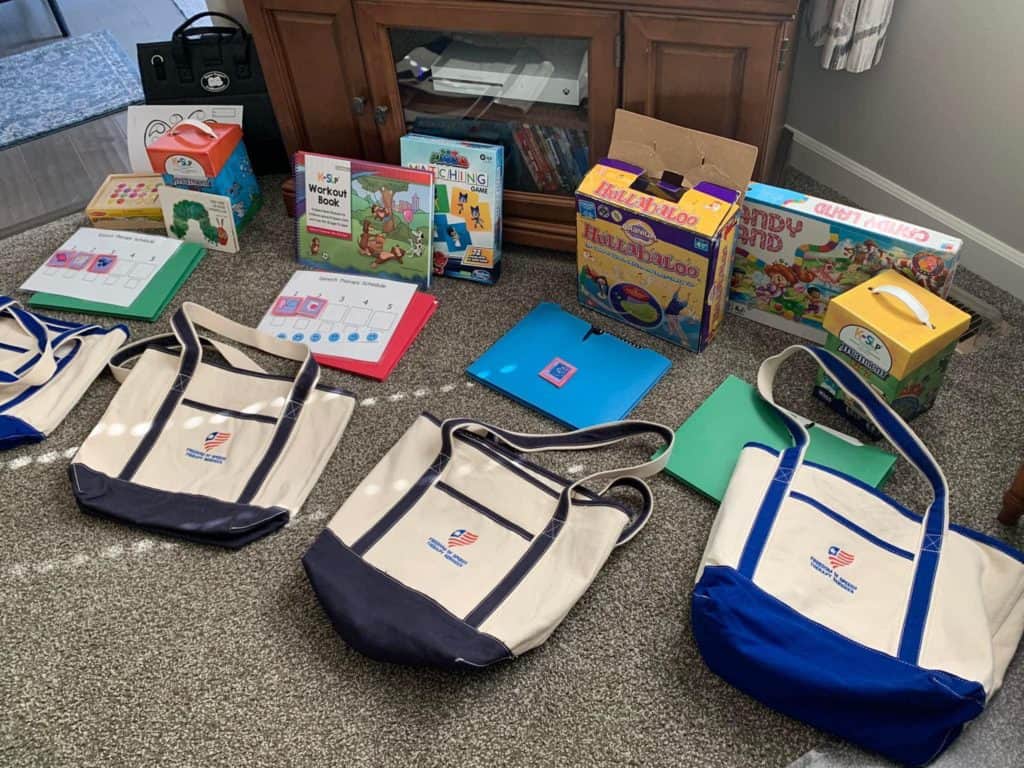
What led you to becoming a speech therapist?
When I was growing up, my mom worked at a place in Minnesota called Courage Center. It was a big rehabilitation and therapy center for people with injuries or disabilities. The facility had residential care as well as an early childhood/day care program. I spent time volunteering there and got to see SLPs in action. I knew then that it was the career path for me.
Speech therapy seems to be a family friendly field of study for those who want a more flexible schedule in their job. Would you say that is the case or does it play out differently in real life?
I believe that it is indeed the case for a variety of reasons. There is a great deal of demand in this field in all parts of this country. Therefore, you can work in many locations and you have the ability to decide your hours. Most places hiring SLPs are looking for whatever they can get. There is also a great variety of locations for an SLP to work: schools, hospitals, clinics, homes, etc. That also allows flexibility.
What are your current projects or do you have any future bucket list or to do lists for your business or personal life?
I am working towards polishing up my skills in adult intervention, feeding intervention, and myofunctional therapy (for kids with tongue ties) so that I can offer a greater variety of services in my private practice.
One last comment would like readers to know about you:
I consider it such a blessing and a privilege to do this job. I always ask people: what skill or ability is more important than communication? A great quote that answers this question is from Daniel Webster:
“If all my possessions were taken from me with one exception, I would choose to keep the power of communication, for by it I would soon regain all the rest.”
Daniel Webster
Megan, thank you so much for taking the time to sit down and tell us more about yourself and your business focus.
To find out more information, you can find Megan online:
Freedom of Speech Therapy Services and on Facebook for a day-to-day peek inside play therapy.
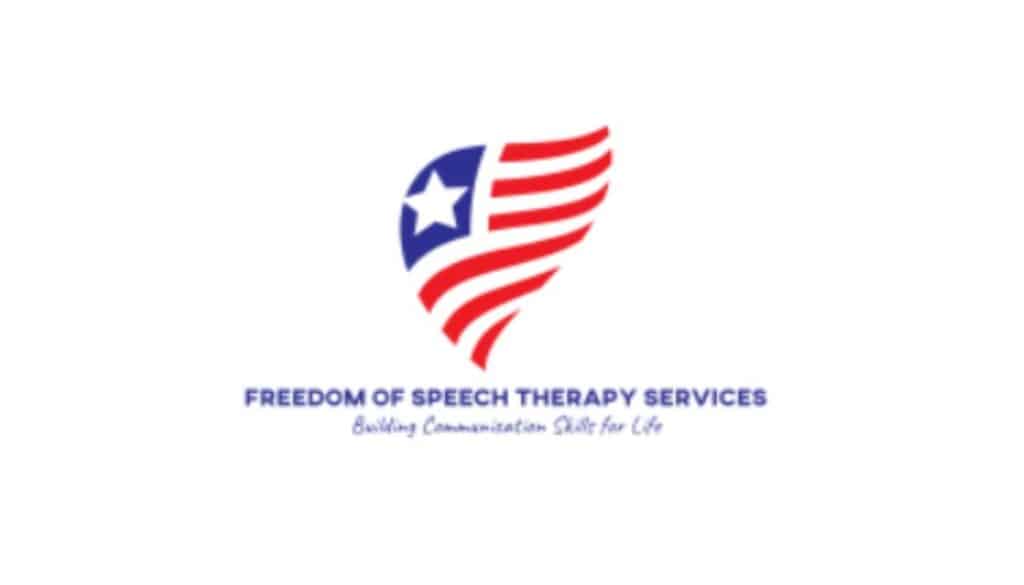
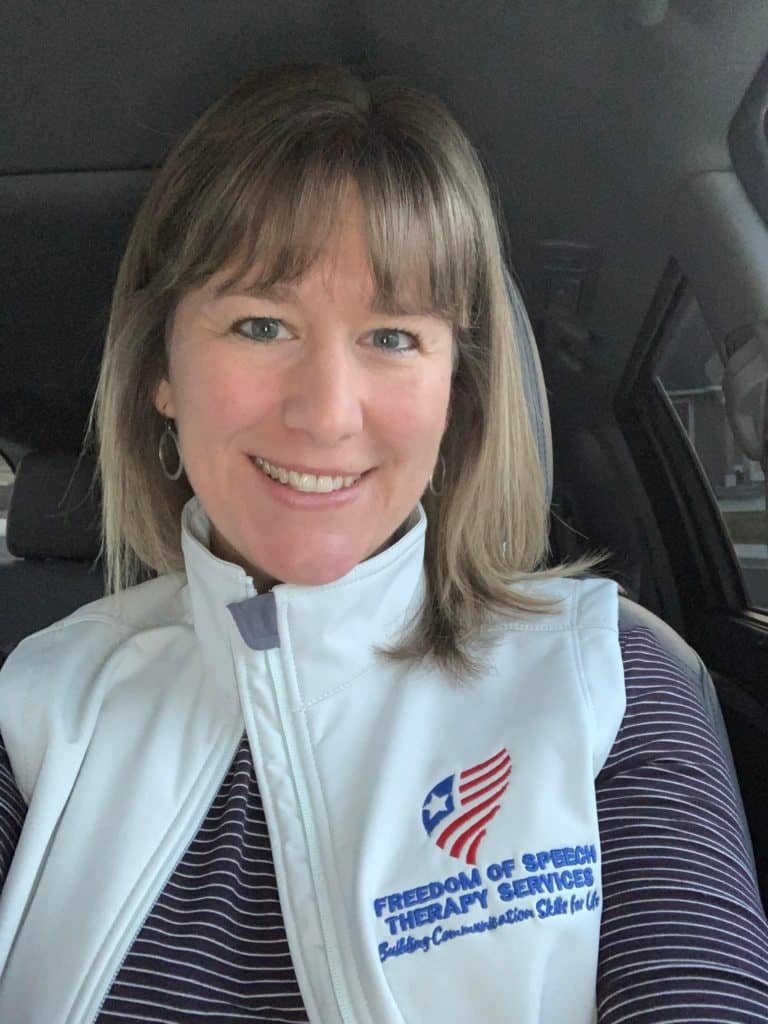
Bonus: Great undergraduate majors to head towards a speech therapy masters if you are considering this field:
- communication sciences and disorders
- linguistics
- English
- education
- psychology
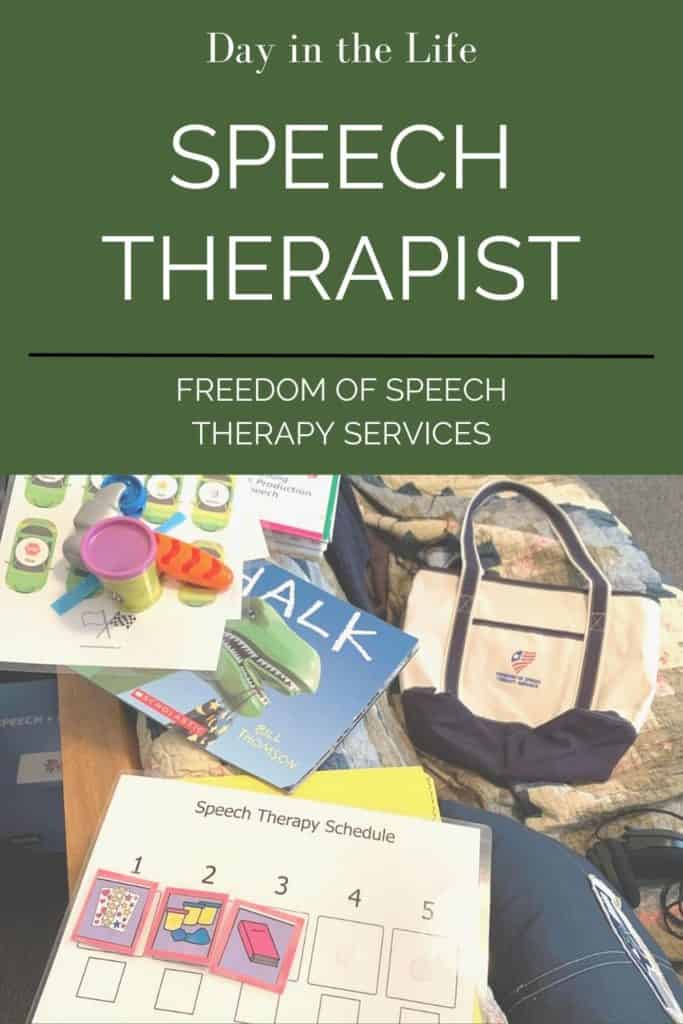

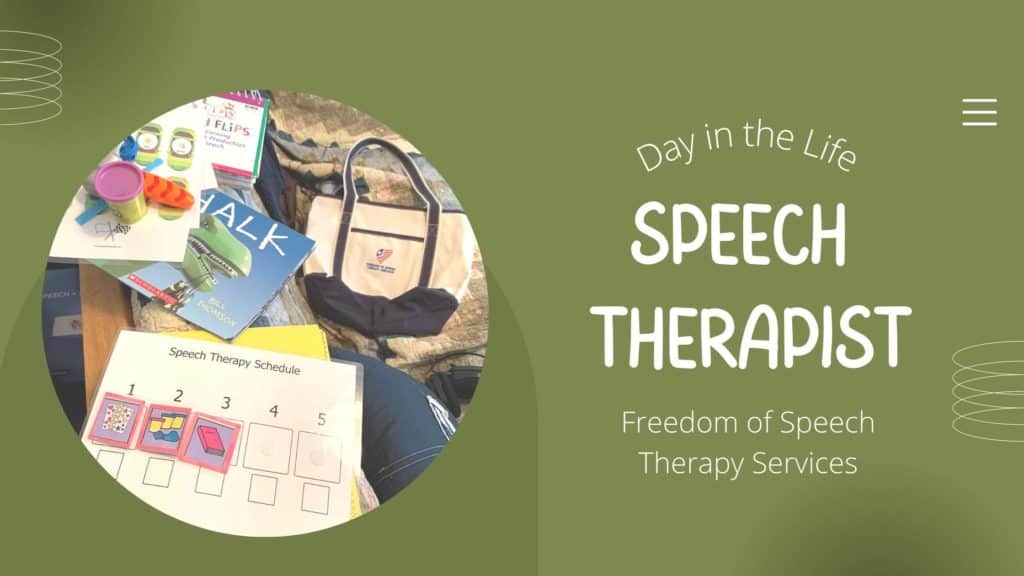

Great topic! I work in pediatrics and love to see Speech Therapists in action and the benefits of this practice. Such a necessity.